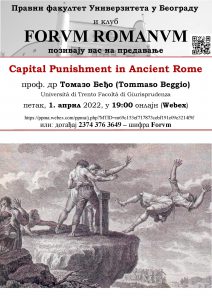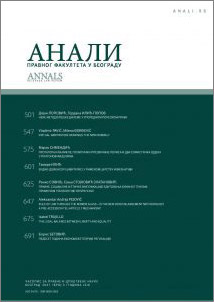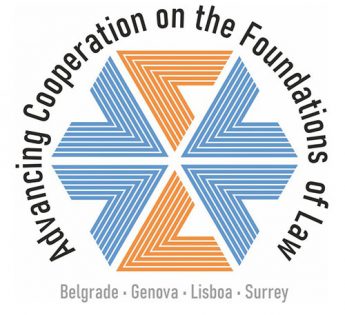
Forvm Romanvm: Prof. Dr Tommaso Beggio gave a lecture on „Capital Punishment in Ancient Rome”
 On Friday, the 1st of April, 2022, the Forvm gathered for the lecture of prof. Tommaso Beggio, PhD, of the University of Trento Faculty of Law, entitled „Capital Punishment in Ancient Rome”. Professor Beggio pointed out that nowadays the term poena capitalis usually refers to the death penalty, and death penalty alone, but that it used to include other forms of punishment that influenced the caput – or the head, as it were, meaning that both the life and the legal position of the convicted were at stake. The authority to take or spare a life – vita necisque potestas – belonged, at first, both to the head of a family and to the state. Also belonging to this category of punishment were exile – aquae et ignis interdictio – deportation to an island (introduced during the Principate), hard labour in the mines, fighting in the gladiator arena, the loss of citizenship or freedom… In time, a difference in terminology emerged – poena capitalis was any type of punishment that gravely affected a person, and poena capitis was the death penalty. Prof. Beggio also spoke of the different ways in which the death penalty was executed in Ancient Rome. The notorious executions that involved being thrown off of the Tarpeian Rock or trapped in a sack with live animals and thrown into the river Tiber, were reserved for special rites of redemption; the most common way of execution during the Republic was beheading. Since the beginning of the Principate, we can see the symbol of imperial will in the use of this type of punishment, along with a rise in its use and the fact that the execution was becoming more and more of a spectacle. From the time of emperor Constantine, the influence of religion on criminal law becomes more apparent. Using several source fragments as examples, prof. Beggio also pointed out the views of Roman jurists on these punishments, and the types of punishments that appear in their writings. The lecture was followed by an interesting discussion on several subjects – whether the death penalty is at all justified, the status of different kinds of public slaves and those condemned to slavery, measures against vendetta, crimes that carried capital punishment, but also the social status of the perpetrators, since those belonging to a higher class often received milder punishments.
On Friday, the 1st of April, 2022, the Forvm gathered for the lecture of prof. Tommaso Beggio, PhD, of the University of Trento Faculty of Law, entitled „Capital Punishment in Ancient Rome”. Professor Beggio pointed out that nowadays the term poena capitalis usually refers to the death penalty, and death penalty alone, but that it used to include other forms of punishment that influenced the caput – or the head, as it were, meaning that both the life and the legal position of the convicted were at stake. The authority to take or spare a life – vita necisque potestas – belonged, at first, both to the head of a family and to the state. Also belonging to this category of punishment were exile – aquae et ignis interdictio – deportation to an island (introduced during the Principate), hard labour in the mines, fighting in the gladiator arena, the loss of citizenship or freedom… In time, a difference in terminology emerged – poena capitalis was any type of punishment that gravely affected a person, and poena capitis was the death penalty. Prof. Beggio also spoke of the different ways in which the death penalty was executed in Ancient Rome. The notorious executions that involved being thrown off of the Tarpeian Rock or trapped in a sack with live animals and thrown into the river Tiber, were reserved for special rites of redemption; the most common way of execution during the Republic was beheading. Since the beginning of the Principate, we can see the symbol of imperial will in the use of this type of punishment, along with a rise in its use and the fact that the execution was becoming more and more of a spectacle. From the time of emperor Constantine, the influence of religion on criminal law becomes more apparent. Using several source fragments as examples, prof. Beggio also pointed out the views of Roman jurists on these punishments, and the types of punishments that appear in their writings. The lecture was followed by an interesting discussion on several subjects – whether the death penalty is at all justified, the status of different kinds of public slaves and those condemned to slavery, measures against vendetta, crimes that carried capital punishment, but also the social status of the perpetrators, since those belonging to a higher class often received milder punishments.







